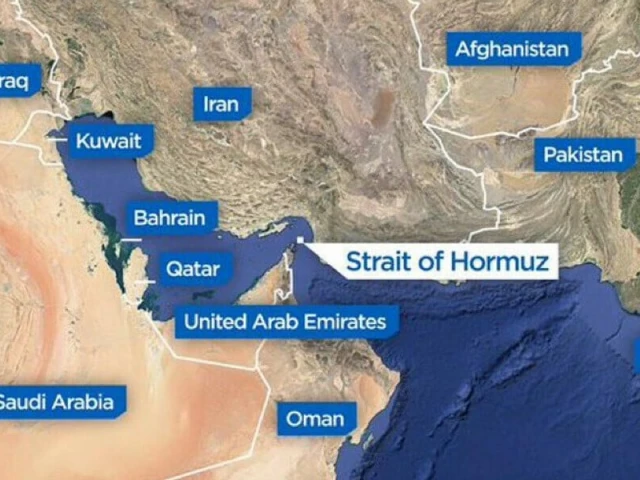What impact can closing Strait of Hormuz have on international trade?
Iran’s parliament voted in favour of shutting down the waterway after US strikes on its nuclear sites

Iran’s threat to close the Strait of Hormuz has raised alarms across global markets given concerns over potential disruptions to one of the world’s most critical energy corridors amid escalating conflict with the United States and Israel.
The warning follows US airstrikes on Iranian nuclear sites over the weekend.
On Sunday, Iran’s parliament voted in favour of shutting down the waterway — a move seen as possible retaliation. Any final decision, however, rests with the Supreme National Security Council and Iran's Supreme Leader Ayatollah Ali Khamenei.
The Strait of Hormuz, a narrow 31-mile-wide channel between Iran and Oman, is responsible for the transit of nearly 20 million barrels of oil daily — about a fifth of global supply. It also carries a significant portion of global liquefied natural gas (LNG), primarily from Qatar.
While no formal closure has occurred, analysts say even verbal threats have unsettled energy markets. Deutsche Bank estimates oil prices could spike to $120 a barrel in the event of a disruption, up from the current $75.
“Noam Raydan, energy analyst at the Washington Institute, says a full closure is unlikely due to the economic blowback Iran itself would suffer, particularly with China, its main oil customer,” she said. Instead, Raydan believes Iran may opt for limited maritime attacks to destabilise the region without fully blocking the strait.
The Strait has long been a flashpoint. In 2019, multiple vessels — flagged from Saudi Arabia, Norway and Panama — were damaged in attacks that the US blamed on Iran. Tehran had denied responsibility.
During the 1980s Tanker War, Iranian forces also targeted shipping lanes, prompting US naval protection for flagged ships.
Iran previously threatened closure in 2011 in response to sanctions over its nuclear programme but never acted. Under international maritime law, blocking the strait would constitute a breach and potentially an act of war.
Global Reaction
US Secretary of State Marco Rubio warned Iran against acting on its threat. “It’s economic suicide if they do it,” he told Fox News, adding that any closure would warrant a strong response.
China, a major stakeholder in Gulf oil routes, also voiced concern. “Keeping the region safe and stable serves the common interests of the international community,” said Chinese foreign ministry spokesperson Guo Jiakun. He called for dialogue and restraint.
United Kingdom’s Foreign Minister David Lammy echoed the sentiment, urging Iran not to escalate tensions. “It would be a mistake to blockade the Strait of Hormuz,” he told BBC. European Union foreign policy chief Kaja Kallas also described any closure as “extremely dangerous”.
Broader economic risks
John Konrad, maritime expert and founder of gCaptain, warned that closures or disruptions would ripple through shipping, raising the cost of transporting energy and goods globally. This could hinder fertiliser supply chains, potentially sparking food shortages and inflation.
The Middle East’s strategic location — between Europe and Asia — further amplifies the threat.
Countries like Iraq rely on the strait for nearly all oil exports. While some Gulf states have alternate routes, the scale of reliance on Hormuz makes it a vulnerable chokepoint.





















COMMENTS
Comments are moderated and generally will be posted if they are on-topic and not abusive.
For more information, please see our Comments FAQ